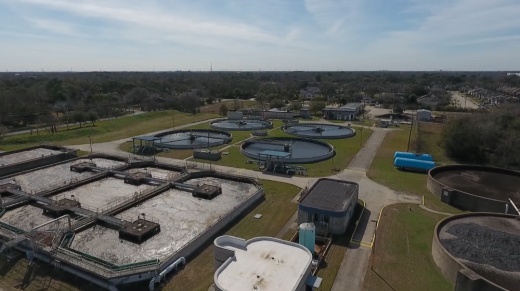Many residents will use more energy than normal during high-temperature events because they turn on air conditioning. However, too much power usage along with high heat on the local grid can cause electrical equipment to melt and fail, according to Edison International. This is especially dire to city facilities that help keep important functions running, namely the Dallas Salmon Wastewater Treatment Plant.
This plant is a city facility that cleans the city’s sewage and puts the remaining water back into the environment. This way, residents could use and dispose of water without harming the environment, according to the United States Geological Survey.
Without this facility, sewage water would be put back into the ocean without being cleaned, harming the bacteria living there. This in turn would cause oxygen depletion, a phenomenon where aquatic life would be unsustainable in the oceans, according to the NOAA and Water Industry Journal.
In order to prevent a power outage and avoid a catastrophe like this from happening, for the past month, wastewater treatment staff have lowered the amount of power they used during hours when energy usage in the city was highest. Because the Dallas Salmon Wastewater Treatment Plant is the city’s largest power service, reducing its power would relieve some stress on the power grid, according to a League City news release.
“Through the peak demand period, which is about 1 o’ clock in the afternoon till 6 in the evening, ... we curtail the power the best we can,” Public Works Director Jodi Hooks said in a video. “[We also] completely monitor the system because at no point do we want to compromise the treatment of the wastewater itself.”
If a power outage does occur, League City has 41 generators filled with backup fuel that will keep wastewater utility sites running, Hooks said.




